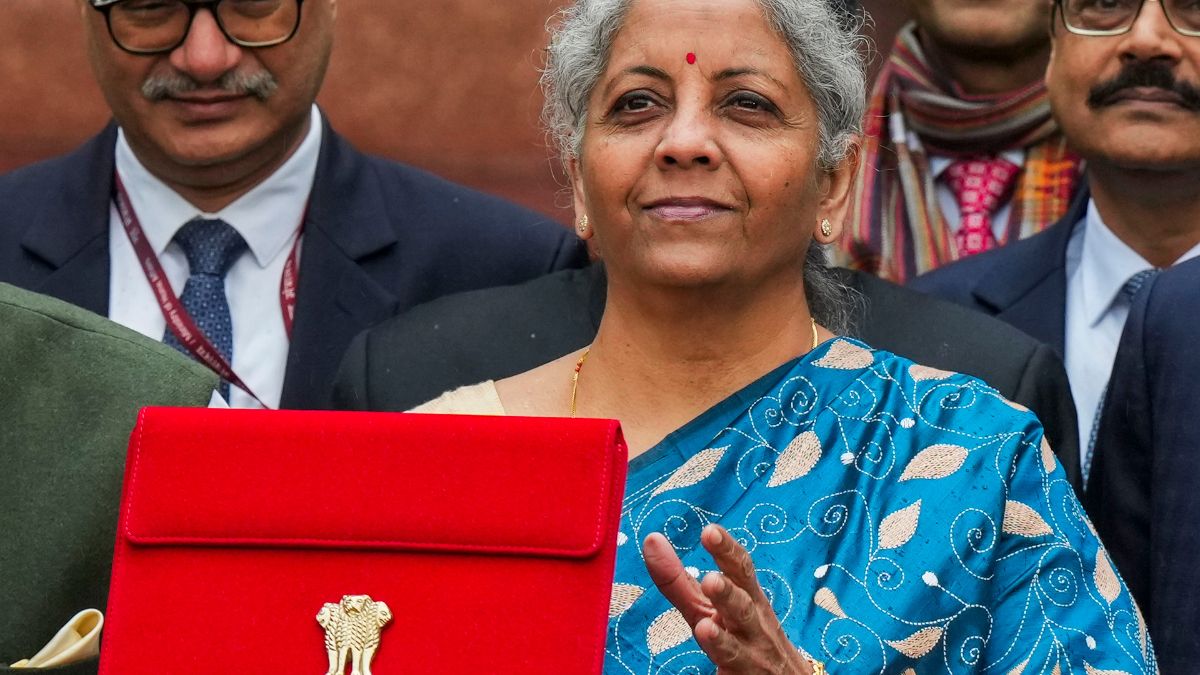Over the span of six Union Budgets, Finance Minister Nirmala Sitharaman has dealt with a complex economic landscape, announcing pivotal decisions that have shaped India’s fiscal policy and economic trajectory in the past five years. From corporate tax reforms to revenue growth and global economic positioning, her tenure witnessed significant milestones alongside critical challenges, reflecting the dynamic nature of India’s economic journey under her stewardship.
Lowering corporate tax in the first Budget
In her maiden budget of 2019, Sitharaman made a bold move by significantly lowering corporate tax rates in India. This decision aimed to align India’s tax regime with global standards, fostering a more competitive business environment and encouraging investments. At the time, India had been grappling with subdued private sector investment, and Sitharaman’s measure was seen as a strategic step towards revitalising economic growth.
The reduction brought the corporate tax rate down to levels comparable with those of other major economies, aiming to attract both domestic and foreign investments. However, while the move was praised for its boldness, its impact on job creation was questioned. Critics argued that despite lower taxes, the expected surge in employment opportunities did not materialise, largely due to the shift towards capital-intensive investments rather than labour-intensive ones.
Addressing concerns in 2024, Sitharaman defended the tax cuts, highlighting ongoing transitions in industry towards automation and digital technologies. She emphasised that while immediate job creation might not have met expectations, the long-term benefits of enhanced industrial capacities and technological advancements would fuel economic growth in newer, more sustainable ways.
Impact Shorts
More ShortsNo hike in income tax rates through six Budgets
Throughout her tenure, Sitharaman maintained stable income tax rates, refraining from any increases despite varying economic challenges. This stability provided a predictable environment for taxpayers and businesses, ensuring continuity in financial planning and investment decisions. It was a deliberate strategy to support consumption and economic stability amid global uncertainties and domestic economic reforms.
The decision not to raise income tax rates was particularly crucial during the Covid-19 pandemic, where fiscal stability played a critical role in managing economic shocks. Despite pressures to increase revenues, Sitharaman’s approach focused on broadening the tax base rather than raising rates, aiming to enhance compliance and efficiency in tax collections.
Rise in revenue, Including GST
Under Sitharaman’s stewardship, India witnessed a notable increase in revenue collection, driven significantly by the Goods and Services Tax (GST). Average monthly GST collections surged from less than Rs 1 lakh crore before her tenure to Rs 1.7 lakh crore by 2023-24, showcasing improved tax compliance and economic activity. This growth in indirect taxes complemented steady direct tax collections, contributing to overall fiscal resilience.
However, the rise in revenue was not without challenges. Critics pointed out a corresponding increase in tax scrutiny and compliance costs, particularly affecting small businesses and professionals. Instances of retrospective tax demands and lengthy audits raised concerns about the ease of doing business and the fairness of tax administration, highlighting areas needing reform.
Disinvestment, a constant worry except Air India
Sitharaman’s efforts in disinvestment yielded mixed results, with the sale of Air India being a notable success amidst other setbacks. The government’s aim to divest from state-owned enterprises faced hurdles ranging from market conditions to bureaucratic delays, limiting the anticipated revenue gains and strategic partnerships.
While the Air India sale marked a significant milestone, other divestment targets were not met as expected. Challenges in asset valuation, regulatory complexities, and investor confidence posed barriers to achieving optimal outcomes in disinvestment, reflecting broader systemic issues in India’s privatisation efforts.
Lifting India from 7th to 5th position by size of economy
One of the standout achievements of Sitharaman’s tenure was India’s ascent from the 7th in 2018 to the 5th position in global GDP rankings by 2022. This remarkable leap underscored India’s economic resilience and growth trajectory amid global economic shifts and internal reforms.
The transformation was driven by sustained economic expansion, structural reforms, and demographic dividends, propelling India past traditional economic powerhouses like the United Kingdom. Projections by international bodies like the International Monetary Fund (IMF) forecasted continued growth momentum, positioning India favourably in the global economic landscape.
Fiscal deficit, a roller-coaster ride
Managing the fiscal deficit proved to be a roller-coaster journey for Sitharaman’s economic policies. While initial years saw relative stability, external shocks such as the Covid-19 pandemic necessitated increased government spending, widening the fiscal deficit temporarily. Sitharaman navigated these challenges with targeted fiscal measures, balancing economic stimulus with fiscal prudence to mitigate adverse impacts on public finances.
The trajectory of the fiscal deficit, although fluctuating, reflected efforts to maintain macroeconomic stability while supporting economic recovery and social welfare programmes. Future fiscal policies are expected to focus on sustainable fiscal consolidation, ensuring long-term economic resilience and fiscal discipline.
Sitharaman’s six Union Budgets have been marked by significant achievements and notable challenges. From corporate tax reforms and revenue growth to global economic positioning and fiscal management, her tenure has shaped India’s economic landscape amidst evolving domestic and global dynamics.
While successes like GST reform and GDP growth underscored her tenure’s strengths, challenges in disinvestment and fiscal deficit management highlight areas needing continued attention and reform in India’s economic governance.
As the economic horizon evolves, the legacy of Sitharaman’s policies will continue to influence India’s path towards economic prosperity and resilience.


)

)
)
)
)
)
)
)
)



